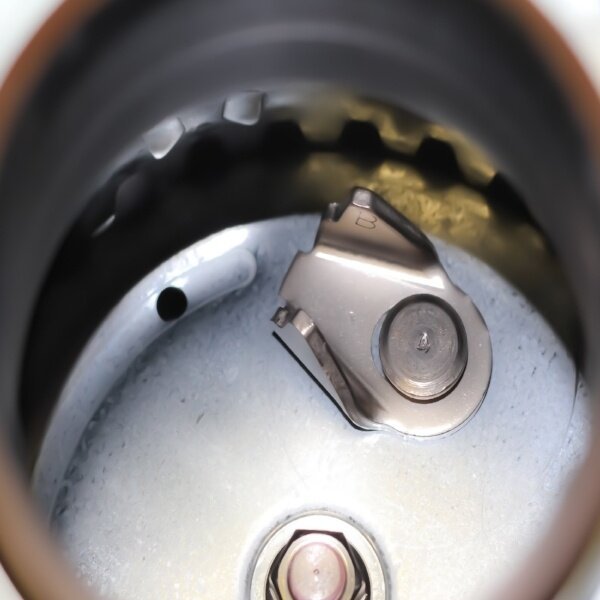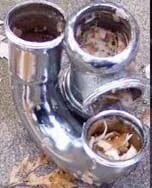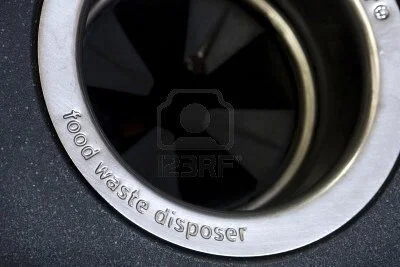Maintaining a Garbage Disposal
Your garbage disposal is the perfect apparatus to prevent your sink from being clogged up. Many people don’t understand how a garbage disposal works. They scrape every sandwich crust and gob of mashed potato leftover from dinner without realizing that the point of a garbage disposal isn’t to hasten a max exodus of your food waste into the public sewage system. The garbage disposal is meant for those bits which resiliently cling to the plates after you scraped them. This doesn’t mean you can’t use it to dispose of food, but it’s important not to overfill it, or leave food in the unit without running it immediately. Add food slowly, let the unit run until the food is gone, and then shut it off before you turn the water off, so the ground food has a chance to clear.
No blades
Another fact people are startled to learn is that there aren’t sharp ‘blades’ in a garbage disposal. We think if we drunkenly stuff our hand down there while the disposal is turned on, it will eat our limb up to the elbow like a wood chipper, but that isn’t exactly true. If you look at the photo, you’ll see a couple of oddly shaped disks, called impellers which operate by centrifugal force. These push the food against a grind shear ring that shreds it like a cheese grater. Yes, it will hurt and cut you up, but no one is going to put their hand in the disposal anyway.
Unfortunately, they don’t grind up soft food or stringy food. So, from that cracked stalk of celery, the hard bit will go down, but the strings will wind themselves around the disks and jam up your disposal. It has the same problem with corn husks, onion, and artichokes.
No starch, please
The second thing your garbage disposal isn’t designed to do is handle starch products. Potatoes, bread, and pasta (cooked) are gummy and swell in water, which means after you put them down the sink, even if you get them down past the disposal, they can clog the plumbing further down the line. Please resist the temptation to reach for drain cleaner, as drain cleaner can damage the disposal.
There may come a day when the disposal finally gets clogged up with celery strings, onion corn husks, and random fingers. Or, even worse, a bottle cap or wedding ring can slip down into the disposal by accident.
The first thing to do is to shut off the disposal immediately unless you have one with an automatic kill switch. If your disposal is the plug-in type, unplug the motor beneath the sink. Otherwise, take a pair of needle-nose pliers, a pair of tongs, or some other plucky tool, and fish the offending item out. If it’s jammed and you have a hex wrench, insert it into the flywheel hole (middle) at the bottom of the unit and turn it. You may have to reset the unit with the small, red reset button, also on the bottom, but off to one side. Then reset the breaker if one has tripped in the breaker box and turn the unit back on.
Now, for the ‘do’s’
Do periodically run a tray of ice cubes through. Not because it will ‘sharpen the blades’, but because the hard, sharp cubes will help dislodge old, soft pieces of food from the grinding chamber.
Do clean both the top and underside of the rubber splash guard by scrubbing it with an old toothbrush and some dish soap.
Some people periodically run pieces of orange or lemon rind through the unit to help deodorize it. Vinegar will also work. Vinegar ice cubes may create a double whammy effect.
Some people dump a cup of baking soda down the unit, let it sit for an hour or so, and then flush it with hot water.
We hope this has given you some insight into the inner workings of your garbage disposal. If there is a problem you can’t solve with these tips, give us a call.
Adaven Plumbing is a family-owned residential and commercial plumbing company specializing in water heater installation, repair, or replacement, water filtration, water softeners, garbage disposal installation, garbage disposal repair, and garbage disposal replacement. We are licensed and available 24 hours, Monday to Saturday.




